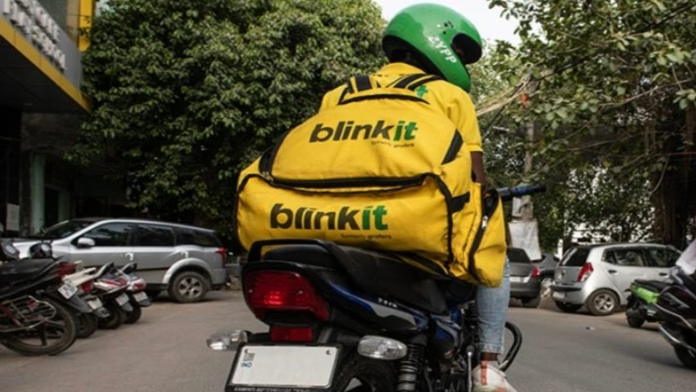The services of quick-commerce platform Blinkit, owned by Zomato, have been disrupted in the Delhi-NCR region due to a strike by its delivery partners. The strike was initiated in response to changes in their pay structure.
“Sorry for the inconvenience. Your store is under maintenance,” reads a message from the startup on its app in some areas of the national capital.
The Morning Context has reported that Blinkit implemented a new pay structure for its delivery partners starting from Monday midnight. Under the new system, the partners must reserve their time slots and fulfill designated targets to receive payment on a per-kilometer basis. The delivery partners, however, argue that this would result in a decrease in their earnings.
Responding to SnackFax’s query on the issue, a Blinkit spokesperson said, “We have introduced a new payout structure for our partners that compensates them based on their effort to deliver an order. This is an opt-in exercise, and our teams are on the ground to answer any questions from the partners.”
The company did not provide a detailed breakdown of the new pay structure and stated that it is actively working towards restoring service to all affected stores as soon as possible.
“Although some locations have experienced disruptions, we are actively engaging with our partners to get the stores back up and running for our customers,” the spokesperson added.
The current strike by Blinkit’s delivery partners is not an isolated incident of gig workers protesting against their employers. In the past year, quick-commerce company Dunzo and food delivery platform Swiggy have also faced numerous protests, largely due to disputes over their payment structures. For example, Swiggy’s delivery executives in Kochi went on strike in November of last year, calling for an increase in their pay.
Last year in Bengaluru, Dunzo riders staged a protest against the startup citing various grievances such as alterations in login timings and incentive structures.
The quick-commerce industry is a fiercely competitive and capital-intensive sector. Swiggy’s Instamart, Zepto, Dunzo, and Tata-owned Bigbasket are some of the major players vying for a greater market share in this field.
Reliance Retail’s JioMart ceased the operations of JioMart Express, its quick-commerce delivery division, earlier this year. JioMart Express was launched in March 2022.
According to a Fairwork report, gig-worker conditions were deemed the worst at Indian startups like Ola, Uber, and Dunzo.
A report from government think tank NITI Aayog predicts that the number of gig economy workers in India will increase to 23.5 million by 2029-30, up from 7.7 million in 2020-21. The report recommends extending social security benefits to both platform and non-platform gig workers.





